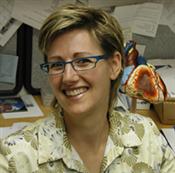Professional Council Symposium: Professional Skills for Future Medical Physicists: A Case Study Example
R Fahrig1*, W Newhauser2*, R Nishikawa3*, (1) Siemens Healthcare GmbH, Forchheim, DE, (2) Louisiana State University, Baton Rouge, LA, (3) University of Pittsburgh, Pittsburgh, PA
Presentations
2:03 PM A View of Clinical Trials from Industry - R Fahrig, Presenting Author
2:18 PM A View of Clinical Trials from Education - W Newhauser, Presenting Author
2:33 PM A View of Clinical Trials from Academia - R Nishikawa, Presenting Author
2:48 PM Q&A - B Parker, Presenting Author
SU-D-TRACK 1-0 (Sunday, 7/25/2021) 2:00 PM - 3:00 PM [Eastern Time (GMT-4)]
The session will present a case study on the processes involved in conducting a clinical trial and the skill sets needed for various steps in the process. Perspectives will be provided for research, industry, and educational points of view. While Medical Physicists can take on the role of ‘clinical studies manager’, specific training and certification already exists for that role and is not the focus of this discussion. The case study will be used as an example of the need for medical physicists to develop new skill to meet the future needs of the profession (e.g., data anonymization and deidentification, financial understanding, bringing innovation closer to marketable commercial product, educational needs to prepare future physicists in these areas).
Rebecca Fahrig, PhD
A View of Clinical Trials from Industry
Medical Physicists have the opportunity to play several different roles in Industry, including supporting research, pre-development, development, and product definition and productization. One key role is to support the creation of clinical evidence that proves the benefit of medical physics technology (imaging and therapeutic) to the Healthcare Community. Clinical studies literacy helps to ensure that the evaluation and clinical implementation of innovative and complex technology is supported by Medical Physicists, and that Medical Physicists continue to be seen as crucial to successful transition of a technology from concept to clinic.
Understanding the pre-development process
-What makes a prototype ‘close to’ product?
oWhen is a prototype ready for clinical evaluation?
-Different regulatory environments for Medical Product testing and release : EU, USA, China, etc.
Bringing the technical details to the table in the planning phase
-Evaluating Risks and Benefits – our sweet spot
-AI and Software as a Product : clinical data access and management
Wayne Newhauser, PhD
A View of Clinical Trials from Education
There are opportunities for many medical physics faculty, students and residents to learn about and participate in clinical trials. Example areas of interest include study design, quality assurance, dosimetry intercomparisons, treatment planning protocols, IRB protocols, data analysis, dose reconstructions, compliance, accreditation, scientific communications, to name a few. Based on the example case presented, we will compare the list of competencies needed against the typical graduate curricula (e.g., as specified by the AAPM Report 197), e.g., scientific methods, radiation physics, dosimetry, medical research ethics, protected health information, etc. Graduated levels of skills in related scientific disciplines will be considered, including statistics, epidemiology, radiation biology, where requirements may vary from familiarity with basics concepts to proficiency to perform certain tasks. Lastly, we will identify selected additional resources available to build skills of relevance to participating in clinical trials.
Robert Nishikawa, PhD
A View of Clinical Trials from Academia
Medical Physicists play a pivotal role in establishing the safety and efficacy of a new technology. Safety and efficacy are the sine qua non for approval of a medical device to be used clinically, as defined by the Food and Drug Administration (FDA). The FDA often requires a clinical trial to establish safety and efficacy, and these trials are almost always conducted by academia. Medical Physicists can either lead the study or support the study in collaboration with other scientists. In either role, it is necessary or at least beneficial to understand the different components in conducting the trial. In this presentation, I will discuss the different components of a clinical trial, with emphasis on data anonymization and deidentification; and the IRB process.
Handouts
- 166-60115-15631646-171516-935711552.pdf (Robert Nishikawa)
Keywords
Not Applicable / None Entered.
Taxonomy
Not Applicable / None Entered.
Contact Email





